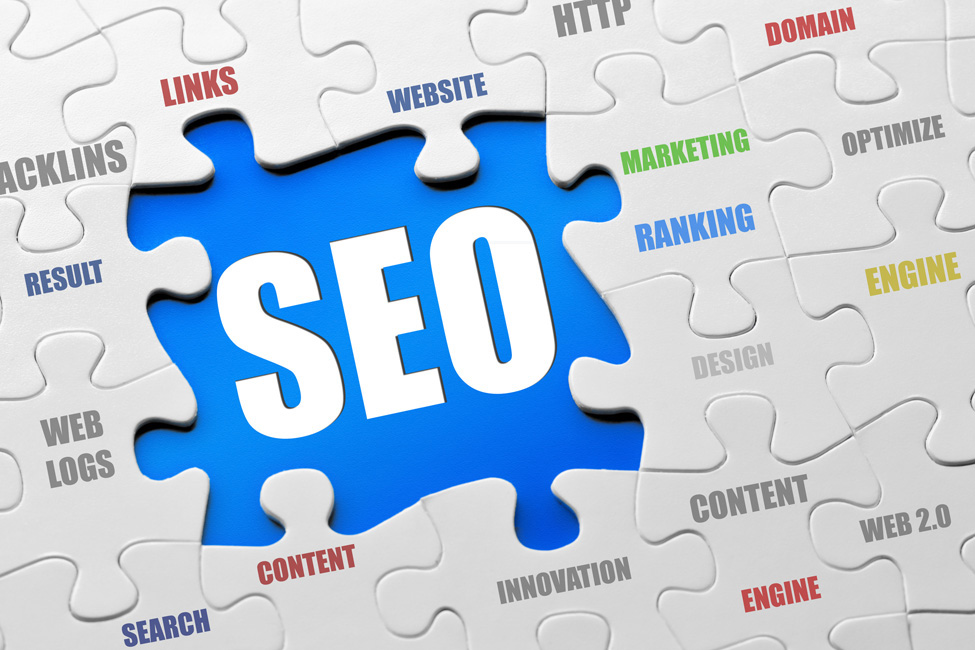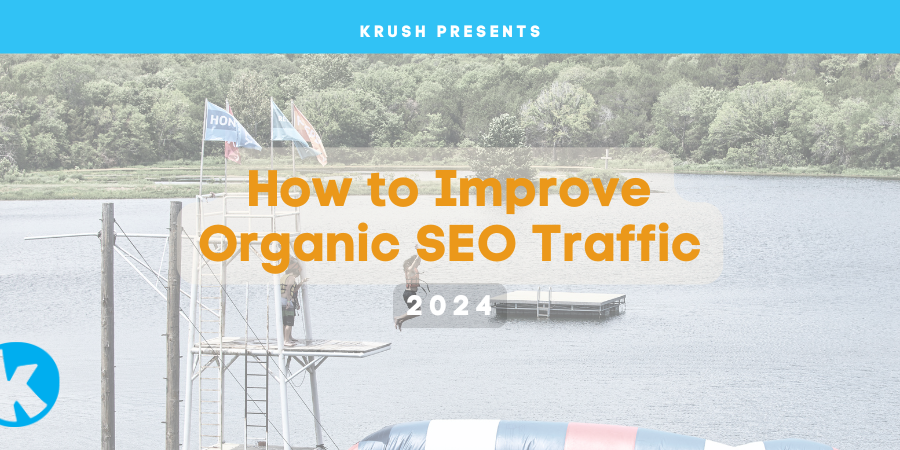Search engine optimization (SEO) is key in drawing traffic to your website. This directly impacts your ability to sell your products or services online. While you can pay for preferred placement on search engine results pages, organic search engine optimization produces free results.
What is Organic SEO?
Search engines like Google and others allow website owners to buy placement at the top of search results for a premium price. Search engines rank your website according to search engine algorithms if you do not buy placement on SERPs. SEO strategies optimize your website’s placement on organic search engine results pages by focusing on these algorithms.
Organic SEO – Simple Explanation
Organic search optimization allows businesses to be more visible online. This leads to increased brand awareness. When your website ranks higher in search engine results, you can benefit from a boost in the quality and quantity of leads and potentially increase sales.
How Organic SEO Works
Organic search engine optimization is not a single technique or effort. Search engine algorithms are complex, considering both on-page and off-page factors. An effective strategy optimizes your website for all these factors to deliver superior results.

What is the Difference Between Local and Organic SEO?
While the goal is to drive traffic to your website, the quality of that traffic matters. You need to appealto your target audience through your SEO efforts. Local SEO describes search engine optimization targeting a geographically specific audience. For example, a car dealership needs to reach an audience within a relatively small radius around the place of business. Local SEO can use organic strategies but focuses on local spaces like maps and local listings. Organic SEO is a broader term that targets local, regional, national, or international audiences.
Focusing on Local vs Global Reach
Your SEO strategy must take into account your target audience’s location. Don’t include a geographic reference in your keywords if you want to appeal to a worldwide audience. For example, you might focus on a phrase like “dental appliances for grinding teeth.” If you focus on local SEO, your long-tail keywords include geographic references. For example, you could target phrases like “stop grinding teeth in Albuquerque.”
Organic SEO Optimization
One of the factors that search engines like Google and others consider is the user’s experience. To rank higher in search engines, your website needs to provide true value and a positive experience to the user. At the same time, search engines need to easily understand what each of your pages is about. Several key factors are essential when planning your SEO strategy.
Organic search engine optimization is a cost-effective way to rank highly on search results pages. The factors that drive placement on search engine results include several on-page SEO efforts and additional off-site efforts.
On-Page SEO
When designing and updating your website, on-page SEO is essential. These SEO strategies play key rolesin bringing organic traffic to your website and ensuring that their experience is rewarding and positive.
Keyword Research and Optimization
Keywords used throughout your website tell search engines what your pages are about. Consider primary and secondary keywords, and support them with relevant content. Search engines penalize websites with keyword stuffing, which involves loading content with keywords rather than naturally incorporating them into your content. When researching keywords, focus on the search volumes for specific phrases and competition for those keywords.
High-Quality Content Creation
Website content, including blog posts, should target the specific keywords you focus on. More than that, the content must be high-quality and provide true value to the user. Ideally, it will be better than any other content on the internet that also targets those keywords.
Meta Descriptions and Title Tags
Meta descriptions and title tags display on SERPs and tell users and search engines what a specific page is about. Optimize both with a target keyword.
Off-Page SEO
Search engines also look at off-page signals to determine rankings. While these SEO strategies are more challenging to implement, they are essential.
Backlink Building Strategies
Search engines look at websites linking to your site to determine authority and relevance. You can purchase backlinks, but it is best to build backlinks organically. This requires you to produce quality content that other websites can link to, provide other websites with backlinks, and reach out to other website owners.
Social Media Marketing
Social media platforms provide opportunities to build backlinks and drive traffic to your website. Content should be optimizedwith relevant keywords to increase brand awareness and visibility.

Local SEO Tactics
Local SEO tactics are relevant for businesses serving a geographically specific audience. Ranking highly for these businesses involves using local references in long tail keywords. It also includes building backlinks relevant to the community, such as with the local chamber of commerce, promoting special events, and other efforts.
Effective Organic SEO Strategies
Effective strategies are comprehensive, taking into account a wide range of tactics. Refine your strategy to include all of these efforts.
Content Marketing
Content marketing involves creating high-quality, keyword-optimized content that strongly appeals to the user’s intent and drives organic traffic. This can include blog posts, articles, videos, infographics, and social media posts.
Guest Posting Opportunities
Guest posting is an important SEO tactic. It involves creating valuable, keyword-rich content posted on another website that links to your page.
Technical SEO
Technical SEO intends to improve how search engines crawl a website. These are elements that website visitors are unaware of, such as robots.txt files, XML sitemaps, site structure, and structured data markup.
Website Speed Optimization
Your strategy should be optimizedfor speed. Page load times impact search engine rankings and the users’ experiences. Efforts to increase speed include optimizing image sizes, upgrading your hosting plan, compressing image data, and others.
Mobile-Friendliness
The user’s experience and engagement impact search engine rankings, and developing a mobile-friendly site plays a key role in these areas. A mobile-friendly site has optimized text, easy navigation, no intrusive ads, and optimized images.
Secure HTTPS
HTTPS is a search engine signal that indicates trustworthiness. Sites using HTTPS enjoy slightly higher placement on SERPs. These websites also load faster and encrypt data for a better user experience.
Social Media Marketing
Social media marketing involves promoting your business, products, and services through platforms like Facebook, Instagram, and LinkedIn. Profiles, comments, and posts can incorporate the target keyword and link to your website.
Building Brand Awareness and Engagement
A key benefit of organic SEO is boosting brand awareness and increasing engagement. This is accomplishedthrough a few tactics.
Local SEO
Ranking highly globallyis not ideal if your target consumer is local. Local SEO focuses on a specific metro area, suburb, state, or other geographic area. Doing so increases awareness in the area where the business operates.
Google My Business Optimization
A Google My Business listing is free and is a key part of your organic SEO strategy. This listing provides users with essential details like hours of operation, business address, phone number, reviews, and even a link to your website.
Local Citations and Reviews
A local citation refers to your business, such as on social media profiles, local or industry directories, Google Maps, and Apple Maps. Reviews, including on Yelp, are valuable sources of local citations.
Organic SEO FAQs
Several months or even a year may pass before you see the full results of your efforts. The timeline for results is basedon the quality of your content, pre-existing traffic, and links, how competitive your keywords and industry are, how quickly you can build strong backlinks, and even updates to search engine algorithms.
While you want to rank higher in search engine results pages, you need to know how effective your strategy is. Ideally, more than half of your website’s traffic will come from organic search engine results pages. Specific traffic volume is basedon your niche and target consumer.
Organic traffic is often a key performance indicator. To measure organic traffic, focus on how long users stay on your page, the page load speed, the bounce rate, and search visibility. When creating a strategy, set realistic goals; overall, a conversion rate between 2% and 5% is average.
Resources like Google Search Console and Google Analytics provide valuable insights into performance. Metrics are available for keyword rankings, domain authority, average session duration, and others.
Improve Long Term Organic SEO Traffic
A strong strategy enables your target audience to find your content more easily, building brand awareness and positioning your website as an authority. It also improves the user experience and increases leads. In addition, it is far more cost-effective than paid SEO strategies.
Your SEO strategy requires regular attention. Metrics should be monitoredregularly, and keyword research should be completedto ensure your efforts are as effective as possible. Repositioning your strategy supports long-term success.
KRUSH is a full-service strategic marketing firm and advertising agency. We specialize in SEO, branding, graphic design, media planning, photography, social media, videography, as well as website development& design. Our focus is to create strategic and innovative marketing & advertising that will surpass your expectations. Our methods will grow your brand and your bottom line. We are your strategic marketing partner. Check out our portfolio of work and contactKRUSH today!







